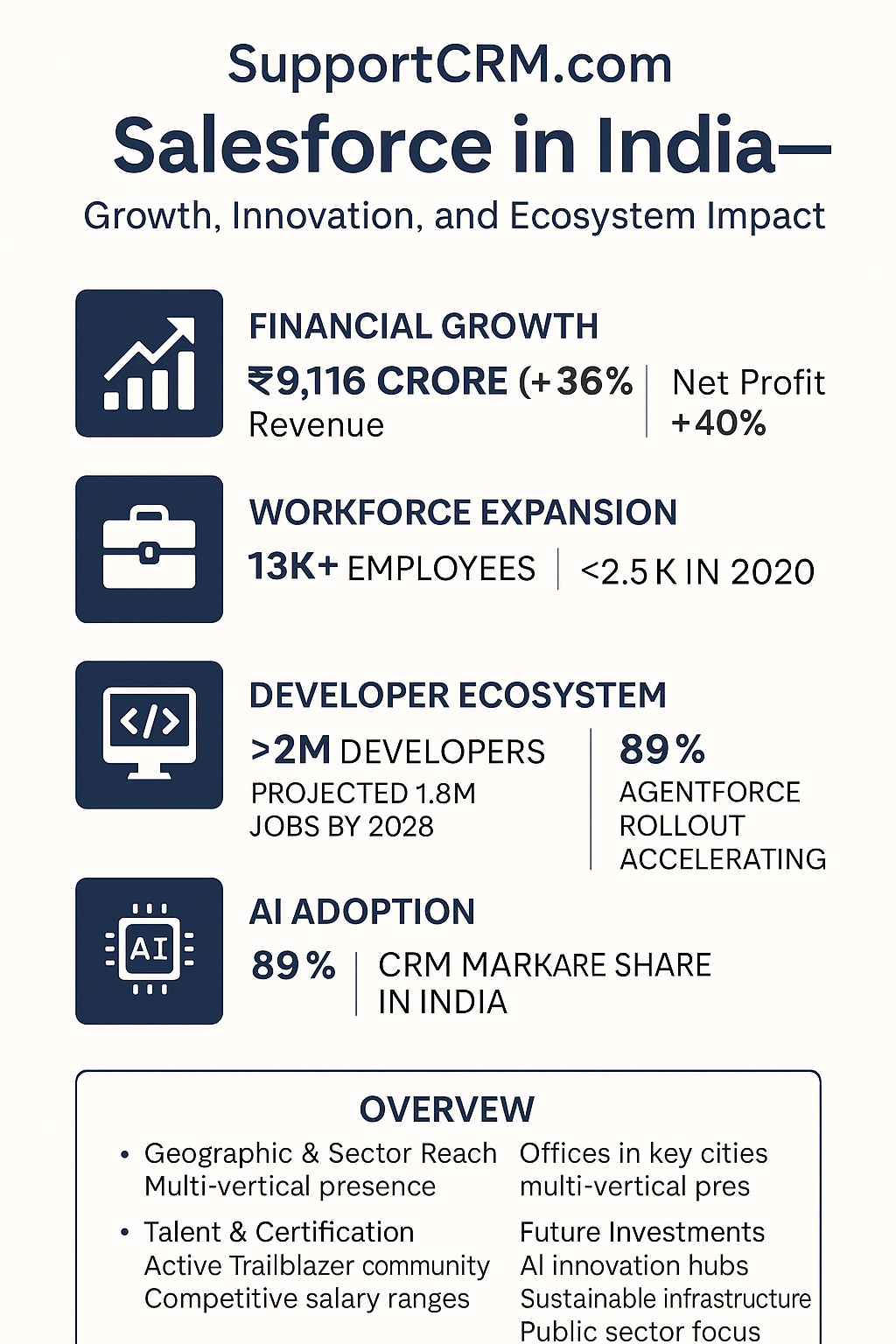How to Outsource CRM Development and Support to Offshore Teams

The global Customer Relationship Management (CRM) market was valued at $101.4 billion in 2024 and is projected to reach $262.7 billion by 2032, growing at a CAGR of 12.6%.
With such rapid expansion, organizations are under pressure to customize, integrate, and maintain CRM systems like Salesforce, Microsoft Dynamics 365, HubSpot, Oracle CX, and Zoho CRM.
Yet, building an in-house CRM team is expensive, especially in high-salary regions such as North America and Western Europe.
As a result, outsourcing Software development and support to offshore teams has become a strategic move for companies seeking cost savings, faster delivery, and access to global talent.
Section 1: What is CRM Outsourcing?
CRM outsourcing involves partnering with external teams—often located in cost-competitive countries—to handle:
Development Services
· Customizing CRM modules and workflows
· Building integrations with ERP, marketing automation, or e-commerce systems
· Developing plugins, add-ons, or AI-based automation
· Migrating data from legacy systems to modern CRM and HR platforms
Support & Maintenance Services
· User support and troubleshooting
· Performance monitoring and optimization
· Security updates and compliance checks
· Training and documentation
· Feature enhancements and upgrades
Section 2: Benefits of Outsourcing CRM Development & Support
1. Cost Efficiency
According to Deloitte’s 2024 Global Outsourcing Survey, companies save 30–70% in labor costs when outsourcing to offshore teams.
· Example: A Salesforce developer in the US costs $110–$140/hour, while in India the rate is $25–$50/hour.
2. Access to Skilled Talent
Countries like India, the Philippines, and Ukraine have large pools of certified CRM professionals experienced in Salesforce, HireGen, Microsoft Dynamics, HubSpot, and Zoho CRM.
3. Faster Project Delivery
Offshore teams often work in overlapping time zones, enabling 24/7 development and support cycles.
4. Scalability on Demand
Easily ramp resources up or down depending on project needs without long-term hiring commitments.
5. Focus on Core Business
By outsourcing technical CRM work, internal teams can focus on strategy, customer engagement, and revenue generation.
Section 3: Potential Risks and How to Overcome Them
1. Communication Barriers
Solution: Establish clear communication protocols, use collaboration tools (Slack, Microsoft Teams), and define meeting schedules across time zones.
2. Data Security Concerns
Solution: Sign NDAs, ensure GDPR/CCPA compliance, and implement secure VPN and encryption protocols.
3. Quality Control Issues
Solution: Use KPIs (e.g., bug resolution time, user satisfaction scores) and perform regular quality audits.
4. Time Zone Challenges
Solution: Choose an offshore team with some workday overlap or assign a dedicated account/project manager.
Section 4: Offshore CRM Outsourcing Cost & Country Comparison
Country
Avg. Hourly Rate for CRM Developers
Key Strengths
Example CRM Platforms Expertise
India
$25 – $50
Large talent pool, cost efficiency
Salesforce, Dynamics, Zoho CRM
Philippines
$20 – $45
Strong English, customer support
Salesforce, HubSpot
Ukraine
$35 – $65
High technical skill, EU timezone proximity
Salesforce, Dynamics
Poland
$40 – $70
EU compliance, enterprise experience
Salesforce, Oracle CX
Vietnam
$20 – $40
Competitive rates, growing tech base
Zoho CRM, HubSpot
Latin America
$30 – $60
Nearshore advantage for US clients
Salesforce, Dynamics
Section 5: How to Select the Right Offshore CRM Partner
1. Define Scope & Goals – Be clear about whether you need full development, integration, support, or a mix.
2. Evaluate Technical Expertise – Check certifications (Salesforce Certified Developer, Microsoft Dynamics 365 Specialist, etc.).
3. Review Past Projects – Ask for case studies or references from similar industries, like HR Software, CRM, and Accounts.
4. Assess Communication Skills – Conduct test calls and review their project management tools.
5. Check Security Practices – Ensure strong data protection measures.
6. Start with a Pilot Project – Begin with a small engagement to test quality and collaboration.
Section 6: Best Practices for Successful CRM Outsourcing
1. Establish Clear SLAs (Service Level Agreements)
Define measurable metrics like response time, uptime percentage, and resolution timelines.
2. Use Agile Project Management
Adopt Scrum or Kanban methodologies for transparency and iterative delivery.
3. Maintain Regular Reporting
Weekly progress reports with KPIs ensure visibility and accountability.
4. Invest in Knowledge Transfer
Ensure documentation and training are provided so your team can maintain systems if needed.
5. Align on Time Zones & Overlap Hours
Agree on at least 2–4 hours of daily overlap for real-time collaboration.
Section 7: Case Study – Cost Savings Through Offshore CRM Support
Company Profile:
A US-based retail chain using Salesforce Service Cloud.
Challenge:
High in-house costs for CRM administration and slow response to support tickets.
Solution:
Outsourced to a certified Salesforce partner in India. Services included user support, ticket resolution, dashboard customization, and integration with their POS system.
Results in 12 Months:
· 55% reduction in CRM support costs
· Average ticket resolution time improved by 40%
· Customer satisfaction score increased from 78% to 89%
Section 8: The Future of Offshore CRM Outsourcing
By 2028, over 65% of CRM development will involve AI and automation (Gartner). Offshore teams are increasingly investing in AI-driven CRM customizations, predictive analytics, and chatbot integration.
Businesses that partner with innovative offshore teams will gain a competitive advantage in speed, personalization, and cost efficiency.
Conclusion & Checklist
Outsourcing CRM development and support to offshore teams can be a game-changer for cost optimization and technical innovation.
With careful partner selection, strong communication, and best practices, businesses can achieve higher CRM performance while freeing internal resources for strategic initiatives.